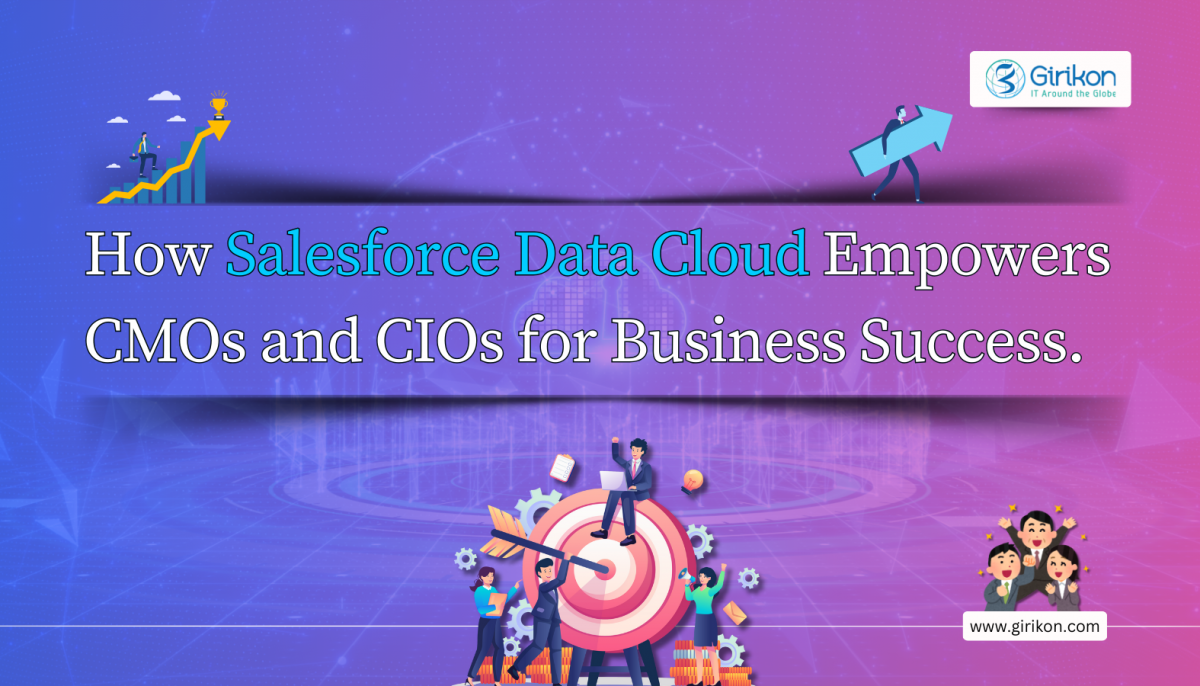Our Blogs
Businesses that use Salesforce as their CRM can reach their maximum potential if they work with the right Salesforce implementation partner. You can eliminate operational bottlenecks and unlock the true power of Salesforce with the help of a Salesforce partner.
One question that new Salesforce users frequently ask is: Is it possible for my company to self-implement Salesforce? Yes, if you have sufficient time for implementation and a solid technical foundation. What happens, though, if you are without the technical support staff? Hiring a Salesforce development partner is a wise choice.

How Does a Salesforce Partner Help?
Before we get started, let's clarify what Salesforce implementation means.
Salesforce platform design, customization, deployment, data migration, integration with third-party systems, and organizational adoption are all steps in the multi-stage process of Salesforce implementation. Data cleansing, staff training, and app integrations are also part of the deployment. Every key stage of implementation of your Salesforce platform is covered in a Salesforce implementation.
What Does a Salesforce Partner Do?
- They offer comprehensive advice on how to select the best Salesforce solutions that adequately meet your company's needs.
- They provide a quick overview of Salesforce license costs in order to save expenses and do away with features and capabilities that aren't necessary for optimizing your business operations.
- They ensure that your current systems can manage a range of business tasks and handle issues with security, customization, and data harmonization that may arise in future updates.
- Rather than spending money on bespoke development, the implementation partner investigates apps on AppExchange that may be relevant to your business.
- If a change in operations is required for user adoption, they will propose, encourage, and manage it.
- They also assist in lowering the risks associated with the scope, budget, and schedule of implementation.
How Would It Help Your Organization?
- Salesforce certified partners have multiple successful deployments across various industries under their belts. The experience will guarantee that the implementations are completed on or before time and with higher quality.
- The partner's experience allows them to foresee risks and promptly mitigate them.
- They help Salesforce customers access tools, training, and support that help them customize the Salesforce platform to meet their organization's objectives.
- They put a strong emphasis on return on investment (ROI), which is the ultimate goal for every business.
- Customers receive substantial business benefits from the engagement, including increased efficiency and the opportunity to investigate new avenues for business.
Certified Salesforce Partners will always assist you in maximizing the advantages of the Salesforce platform, regardless of the situation, whether you have already begun your implementation or are just beginning to consider it.
Several components make up a typical Salesforce implementation process:
- The first step is to establish your company's goals and objectives and how Salesforce fits into the scheme of things. To establish the business goals and collect the business requirements, a number of exploration sessions will be held.
- Design Documentation is the next important step that establishes the framework for the remainder of the project. To identify the challenges in business operations, a Salesforce-certified consultant and business analyst will set up meetings with your team.
- Custom Development follows. During this phase, a certified Salesforce developer will identify the design specs that need to be modified and make sure that proper configurations are used.
- Data migration: A system can only function well if its data is harmonized and organized. It may take some time and work to move your data from legacy systems to Salesforce before the installation begins. Data mapping from legacy apps to a new Salesforce org will be handled by the Salesforce partner.
- Quality Assurance: To support the Salesforce implementation team in testing the new integrated environments, a strong quality assurance team will be put in place. To make sure the implementation works in accordance with the design and business requirements, the team runs a number of test cases.
- Phase II explorations, project management, deployment, and training follow. Salesforce partners can assist you in identifying the settings needed for upcoming updates and offer comprehensive implementation services with continuing support.
The next important task is how to find the right partner, now that you have determined the process, strategy, and commercial benefits you will derive out of this exercise.
5 Factors to Take Into Account When Selecting the Best Salesforce Implementation Partner for Your Company
- Must possess relevant domain experience
Verify the partner's capacity to handle challenging issues and their relevant, industry experience. The partner ought to have worked on projects comparable to yours or with your industry for a reasonable period of time. You can stay ahead of the competition and save time and money on discovery by leveraging their understanding of industry trends.
- Must have adequate resources
Making sure your chosen Salesforce partner has the resources necessary to manage the project, regardless of its complexity, is always a smart idea. Make sure your Salesforce partner has the necessary infrastructure support, technical know-how, global teams, and team strength to support a project like yours in order for it to be implemented successfully.
- Must possess the necessary technical know-how
Make sure the partner employs certified Salesforce experts. This includes developers, consultants, and administrators. Your Salesforce development partner should be certified as both an administrator and a developer, at the very least. The best course of action is often to choose a Salesforce partner who has certified Salesforce experts and is aware of the technical subtleties of Salesforce, as Salesforce implementation can be expensive as a long-term investment.
- Should be able to scale and provide long-term value
The success of a Salesforce implementation depends on the long-term strategy and the capability of the partner to adapt to market dynamics. Before finalizing on one, you must evaluate the partner’s ability to scale up their resources based on your evolving needs.
- Should offer ongoing support
Continued support for your solution is another important factor to think about. To provide ongoing support, make sure your chosen partner offers training, support, and assistance with instructional material. To augment the project's scalability and management over the long term, make sure the implementation partner offers continued support and maintenance services.
Girikon –Maximize ROI with a Gold Salesforce Implementation Partner
With more than 300 Salesforce projects completed successfully in a variety of industries, Girikon is one of the fastest-growing certified Salesforce Implementation partners. Whether it is Salesforce development, customization, implementation, and integration, Girikon offers the full bouquet. In order to unlock the real value of your Salesforce investment, we also have strategic collaborations with industry-leading app and system providers. With our customer-focused approach, we offer Salesforce deployments that are affordable for companies of all sizes. Join forces with us and begin your Salesforce journey today.

 +1-480-382-1320
+1-480-382-1320 +44-7428758945
+44-7428758945 +61-1300-332-888
+61-1300-332-888 +91 9811400594
+91 9811400594


















